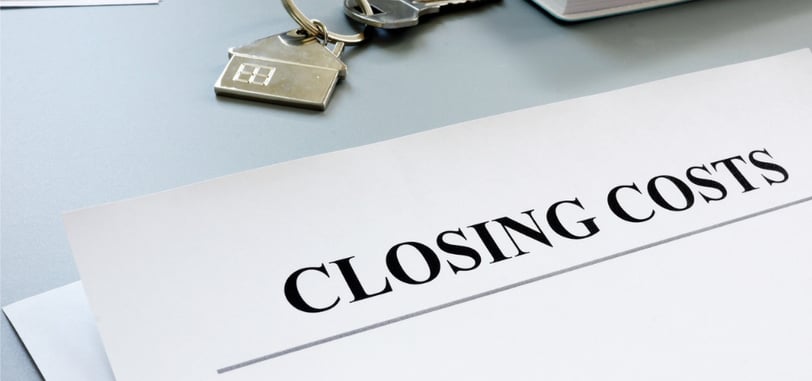What to Expect During the Closing Process
The closing process by explaining each step, from signing the paperwork to getting the keys to their new home.
HOME BUYERS
Maria Melendez, Realtor Broker
4 min read


```html
Preparing for Closing: Steps Leading Up to the Day
Before the closing day arrives, several crucial steps must be completed to ensure a smooth and successful transaction. One of the foremost tasks is conducting a final walkthrough of the property. This allows you to verify that the property is in the agreed-upon condition and that any required repairs have been completed. It's essential to address any discrepancies immediately to avoid complications on the closing day.
Another integral component is gathering and reviewing all necessary documents. This includes the purchase agreement, home inspection reports, and any relevant amendments. Additionally, ensuring that the loan approval documents, including any conditions outlined by the lender, are in order is imperative. Proper documentation helps safeguard against any unexpected surprises.
Understanding the fees and costs associated with closing is fundamental to financial preparedness. Common expenses include closing costs, the down payment, and funds required for escrow. Reviewing the Closing Disclosure form, which should be provided by your lender at least three days before closing, can help you understand the exact financial obligations. Ensuring you have sufficient funds in your account for a wire transfer can prevent last-minute complications.
Effective communication with all parties involved in the transaction is also vital. This includes ongoing discussions with your real estate agent, lender, and attorney to ensure everyone is aligned and there are no outstanding issues. Regular updates and confirmations regarding the closing date, time, and location can prevent misunderstandings and delays.
Finally, to mitigate the risk of any last-minute issues, double-check all details a few days before the closing. Confirm appointments, verify that required payments are ready, and ensure all parties have met their obligations. Preparation and vigilance are key to a seamless closing process.
```The Closing Day: What Happens and What to Expect
As you approach the culmination of your real estate journey, it’s essential to understand the specifics of the closing day. This pivotal day involves several critical steps that both buyers and sellers need to be well-prepared for.
Firstly, both parties will convene at a designated location, often a title company office or an attorney’s office. One of the first actions taken is the verification of identities and financial information. Buyers and sellers must present valid government-issued ID and other necessary documents to confirm their identity.
Subsequently, the closing agent or title officer will guide you through a series of legal documents that need to be signed. For the buyer, this includes signing the mortgage note, which is a legal promise to repay the loan, and the deed of trust, which provides the lender with a claim against the home should the buyer default on the loan. Both parties will also review and sign the closing disclosure, which outlines the final terms and costs of the loan. It's crucial to review these documents meticulously to ensure that all details are accurate and to clarify any uncertainties with your agent or attorney present.
Final payments also come into play at this juncture. The buyer will be expected to wire the down payment and any remaining closing costs, while the seller will facilitate the payment of outstanding property taxes and any remaining mortgages on the property. The closing agent will oversee the proper transfer of these funds, ensuring that all financial transactions are completed accurately.
In cases where discrepancies or issues arise during closing, such as unverifiable funds or missing documents, the closing agent or title officer can help resolve these complications. It’s advisable to approach the closing day with patience and to be prepared for potential delays.
By thoroughly understanding the closing day process and knowing what to anticipate, you can navigate this final step with greater confidence, making your real estate transaction as smooth and efficient as possible.
After the Closing: Final Steps and Receiving the Keys
Once the closing process concludes, the final steps to officially make you a homeowner begin. The first critical task is the recording of the deed with the local government. This legal process ensures that ownership of the property is formally recognized and transferred to you. It is essential to understand that this step may take a few days to complete, depending on the local recording office's efficiency.
During this period, safeguard all signed documents. Keeping copies of these papers is paramount. They serve as evidence of your ownership and might be required for future verifications, loans, or eventual property resale. Store them in a secure place, such as a lockbox or a dedicated digital storage solution.
Receiving the keys to your new home typically happens once the deed recording is confirmed. In most cases, your real estate agent or the closing officer will coordinate this handover. Be sure to verify when and where you will get the keys to avoid any inconvenience.
Next, transitioning utilities and services is a necessity. Contact utility companies for electricity, gas, water, and waste services to transfer these accounts into your name. Similar attention should be given to setting up internet, cable, and other essential services. Many companies allow you to schedule these transitions in advance, ensuring no disruption when you move in.
Logistics for moving in should be meticulously planned. Schedule your movers and ensure you have time to clean the property before your belongings arrive. As you settle into your home, consider immediate actions like maintenance and security setups. Change the locks, inspect smoke detectors, and evaluate the need for a security system. These early steps not only enhance your safety but also provide peace of mind.
Embarking on homeownership comes with responsibilities that begin right after closing. By following these structured steps, you are well on your way to fully transitioning into your new property and creating a secure, comfortable living environment.


